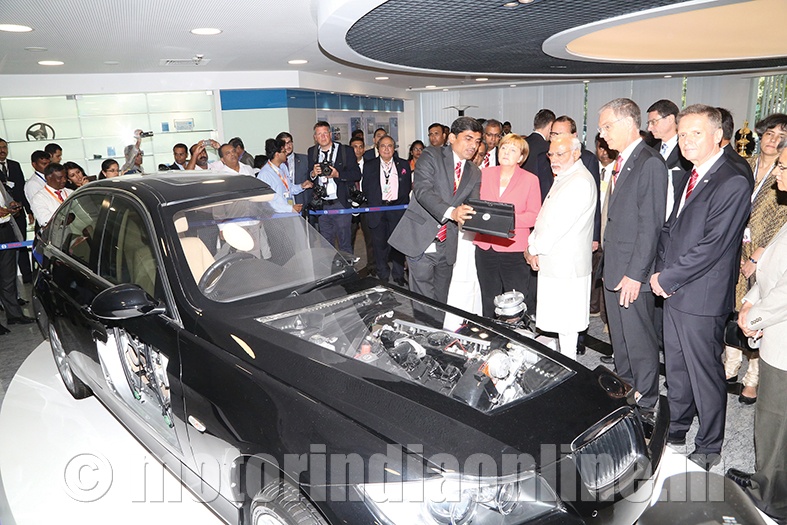Prime Minister Narendra Modi and German Federal Chancellor Angela Merkel visited the Bosch facilities in Bangalore on October 6, as part of the latter’s three-day State visit to India which focused on innovation and skills development. The other high-level delegates who joined them included Mr. Vajubhai Rudabhai Vala, Governor of Karnataka, Mr. Ananth Kumar, Union Minister for Chemicals and Fertilizers, Mr. D.V. Sadananda Gowda, Union Minister of Law and Justice, and Mr. Siddaramaiah, Karnataka Chief Minister.

At Bosch, the high-level delegation commended the company’s research, engineering and vocational education activities in India. “Our commitment to developing talent and the competence of our local engineers are part of our success story in India,” said Peter Tyroller, member of the Bosch Board of management responsible for Asia Pacific.
He emphasized the significant contribution that Indian engineers have made to Bosch’s success story in India, as well as to their current importance for the company’s worldwide activities in strategic areas such as data mining and smart manufacturing.
“India is a key location in our global innovation network. To further strengthen our presence in the country, we plan to invest INR 650 crores (over 100 million euros) in 2015,” Tyroller added.
Over the medium and long term, the company expects to see positive development in India. “The Indian Government is systematically addressing key issues. We are confident that this will positively impact the country’s development,” said Dr. Steffen Berns, President of the Bosch Group in India. “Especially in areas such as mobility, infrastructure, industry, energy and security, there are many opportunities for our products and solutions. The field of smart manufacturing also opens up possibilities for Bosch in India.”
Bosch’s smart manufacturing in India
Bosch is a leading global provider and exponent of connected industry, or “Industry 4.0.” The supplier of technology and services offers a broad range of solutions such as drives, automation, sensors, software, and predictive maintenance.
“By 2018, we aim to implement connected production in all our 14 manufacturing locations across the country,” Berns said.
Industry 4.0 is already a reality at several Bosch plants in India: In Bangalore, the company uses real-time data to shorten throughput times for calibration of pumps for tractors. The location also provides associates with smartwatches that promptly notify them of a machine malfunction. Thanks to real-time monitoring, manufacturing downtimes can be prevented and productivity improved.
In September, production started at the new automotive component plant in Bidadi, where Bosch applies connected industry principles to optimize manufacturing processes.